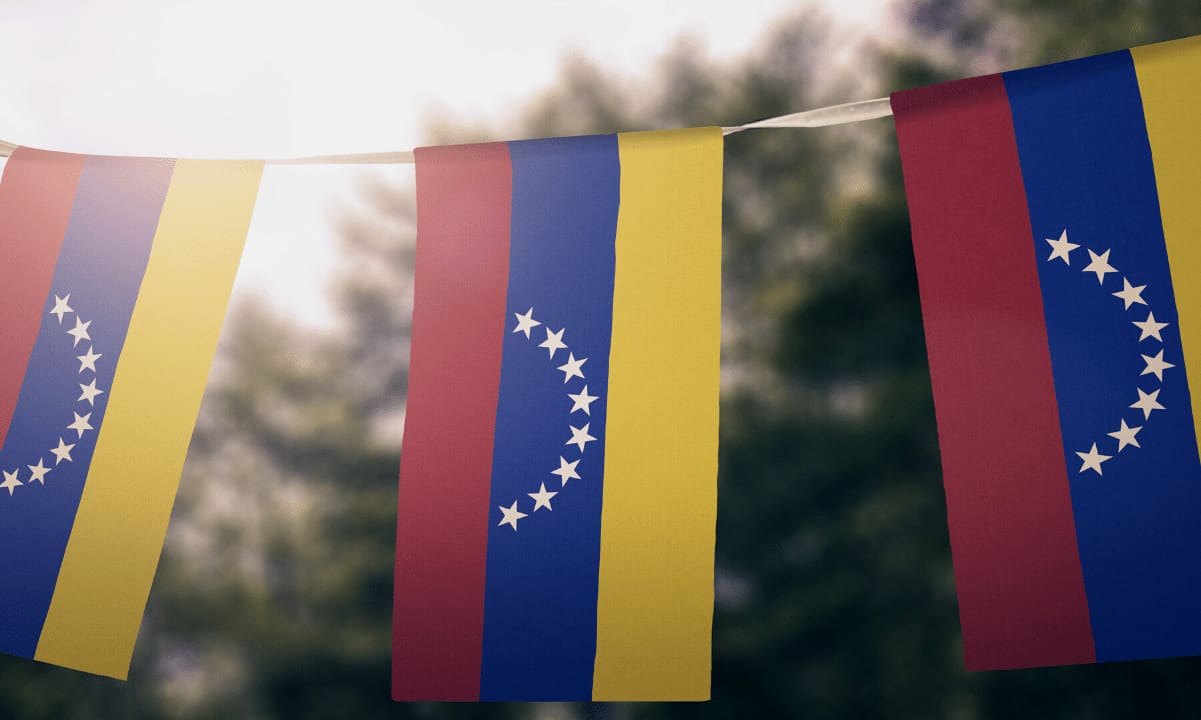Venezuelan political critics and activists have warned that President Nicolás Maduro and his government are increasingly turning to cryptocurrency transactions as a method to evade international sanctions.
This follows the U.S. reinstating gold and oil sanctions recently, following Maduro’s failure to honor an agreement to ensure fair elections scheduled for July.
Critics Urge for Stricter Sanctions
For nearly two decades, the U.S. has imposed targeted sanctions on Venezuela, aiming to pressure the government into democratic reforms. However, Andrew Fierman, head of national security intelligence at Chainalysis Inc., suggests that sanctioned regimes like Maduro’s often explore multiple avenues to evade such restrictions.
Nicolas Maduro and his representatives have not fully met the commitments made under the electoral roadmap agreement. Therefore, General License 44—which authorized transactions related to the oil and gas sector with Venezuela—will expire after midnight and not be renewed.
— Matthew Miller (@StateDeptSpox) April 17, 2024
“When you’re talking about regimes that are subject to sanctions, they’re typically going to look for a variety of ways to evade those sanctions. The Venezuelan government and the Maduro regime have been doing this across a wide array of methods over the years,” Fierman told Bloomberg.
These concerns are detailed in a report from the Woodrow Wilson International Center for Scholars, co-authored by Venezuelan dissident Leopoldo López and Chainalysis’s director of Intel Solutions, Kristofer Doucette. The report highlights loopholes in the latest sanctions, particularly in the context of the Maduro regime’s stated objective to leverage cryptocurrency projects to bypass these international barriers.
López and Doucette emphasize in their report the economic impact of the Maduro regime’s alleged cryptocurrency manipulations. “Every dollar misappropriated by the Maduro regime rightfully belongs to the Venezuelan people,” they wrote.
“The billions that have vanished in recent years represent a grotesque sum, which could have been pivotal in revitalizing the country’s faltering economy. Instead, Maduro’s embrace of cryptocurrency exploited an emerging technology to carve out a new pathway for diverting the nation’s riches, further impoverishing its citizens.”
They call for the U.S. and European Union to implement more comprehensive and strict sanctions and urge other nations to investigate the Venezuelan government’s use of cryptocurrencies in sanction evasion.
Chainalysis Uncovers $70 Million in Stablecoin Transfers
Further blockchain analysis by Chainalysis revealed that SUNACRIP, Venezuela’s National Superintendency of Crypto Assets and Related Activities, was actively transferring large volumes of tokens across various accounts within different cryptocurrency platforms.
Transactions traced by Chainalysis indicated that over $70 million in stablecoins had been processed through addresses likely managed by SUNACRIP or affiliates, facilitating smoother financial operations despite sanctions.
In 2018, the Venezuelan government introduced the Petro, a cryptocurrency backed by the nation’s oil and mineral reserves, to combat hyperinflation and avoid U.S. sanctions. Despite mandates for its use, the token saw limited practical adoption. In January, the government suspended the Petro amid a corruption investigation involving misappropriated payments intended for the state-run oil company, Petróleos de Venezuela SA.
